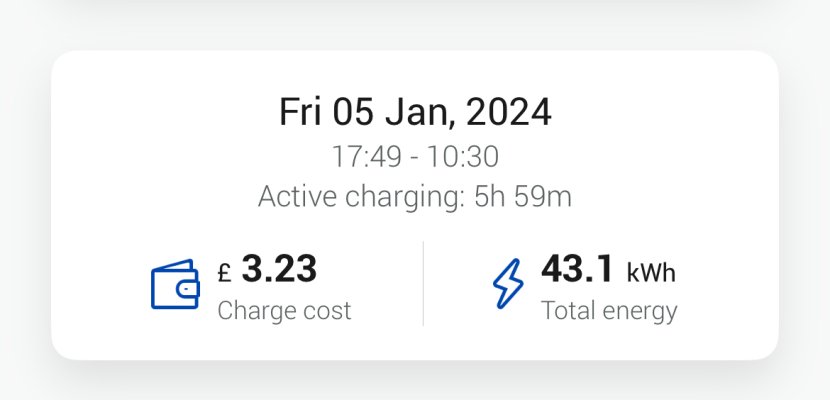- Joined
- Jun 24, 2008
- Messages
- 50,247
- Location
- London
- Car
- 2022 Hyundai IONIQ 5 RWD / 2016 Suzuki Vitara AWD
One example for you: My SIL lives in Liskeard which is 287 miles door to door and the wife and I rack up the miles at an alarming rate throughout the year because SIL doesn't drive so it's always us that goes to visit. This distance is not an issue as I can get there and back and still have fuel in the tank. Also, we usually only stop once for a quick toilet break and driver swap at Gloucester Services and it's back on the road.
Assuming that there are no public chargers available near SIL's house, and that charging at SIL's house using a granny cable is not an option either, then you're looking at a half hour top-up break on the way back home. I can see why an ICE car is the more convenient option here, however I am not convinced that in itself this is a solid case against having an EV.



